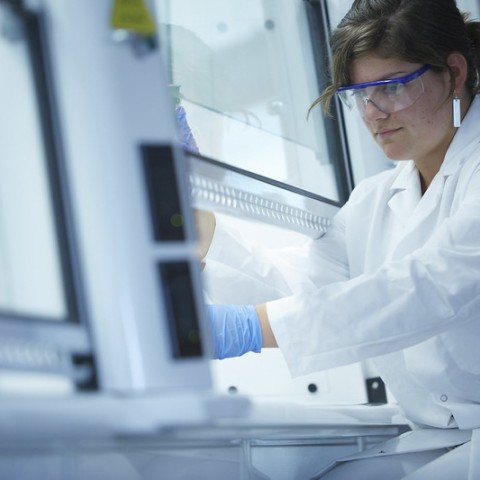
Biochemistry Learning Outcomes
-
Demonstrate an understanding of the key concepts of the traditional areas of chemistry.
-
Communicate complex technical information in written and/or oral format.
-
Interpret and draw conclusions from experimental data.
-
Demonstrate safe lab practices.
-
Retrieve chemical information from the chemical literature, books, and databases.
Program Requirements
Do you have an interest in exploring the causes of disease in humans, plants, and animals? Biochemistry may be the right major for you.
Biochemistry Minor Requirements
Career Opportunities
Biochemistry majors will be prepared to pursue career opportunities across a wide range of exciting fields, including:

Biochemist
Study the chemical processes of living things including chemical and biological theories.
Molecular Biologist
Study how organisms interact with their surrounding environments and alter their gene expression.
Forensic Scientist
Process various pieces of evidence to help law enforcement prosecute suspects.
Research Scientist
Conduct experiments to prove or disprove certain scientific theories or insights.
Quality Assurance Officer
Ensure that pharmaceutical drugs meet standards set by the FDA.
Regulatory Affairs
Develop strategies for managing drug development.
Meet Our Faculty

Priti Tiwari, Ph.D.


